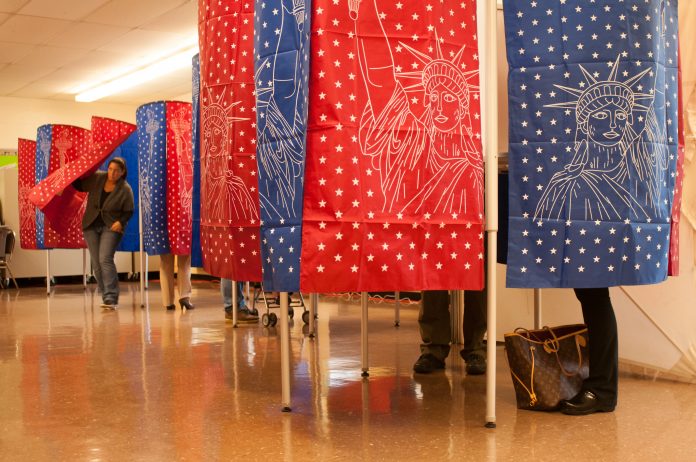New study suggests that both positive and negative election video ads are unlikely to sway voters from the opposition
New study explored supporters on both democratic and republican sides of the 2018 US midterm election and discovered that they are more likely to be moved or angered by political advertising from their own party. Suggesting that most ads do little to sway the other side, but instead help motivate and incentivise current party members and foster a faithful relationship to support a candidate through a vote or donation to campaign.
The study shows that these 2 divisive parties have voters that respond emotionally to political advertising influenced by their own party choice.
First-of-a-kind study
Published in Frontiers in Psychology the first-of-a-kind study used 146 participants who viewed eight videos from the 2018 US Midterms, all with the intention to either emotionally move or anger voters, four from the democratic party and four from the republican party in order to investigate any behavioural change or influence.
The 8 videos chosen were specifically designed with content to evoke either anger or what is known as kama muta. Kama muta is a described as a positive emotion related to social relationships and was used to signify the growing or strengthening of community within a certain party.
However, while previous research implied that political appeals to kama muta could help cross party lines, the new paper finds scant evidence for that. “Feeling moved by an ad from the party you prefer to begin with has a stronger effect than if the other party moved you,” David Grüning, a research scientist at Heidelberg University in Germany noted.
Grüning said it is unclear why there is a discrepancy to past findings. He suggested that perhaps the ads from the 2016 US elections, which included the presidential race between Hillary Clinton and Donald Trump, featured stronger messages.
“We now see that this is possible and need to test this better in future work,” he said, “but, yes, it’s clear now that sometimes, kama muta can be discounted and disregarded.”
Effects of political advertising
Intriguingly the political affiliation of each video was not explicitly stated and were left to the assumptions of the viewer – who sometimes guessed incorrectly. What proves interesting is how the videos had more influence on viewers if they believed it was created by their party of choice, even if the opposite was true.
This illustrated that in order to communicated clearly with their supporters, political parties would benefit from “unambiguously communicate their political affiliation to prevent unwillingly feeding the support of political competitors,” according to Grüning and co-author Thomas W Schubert at the University of Oslo.
The key results of the study imply that political ads in modern politics have little influence on winning over voters from the other side – simply in fostering faithfulness in ones they’ve already got and may influence party faithful to give donations.











